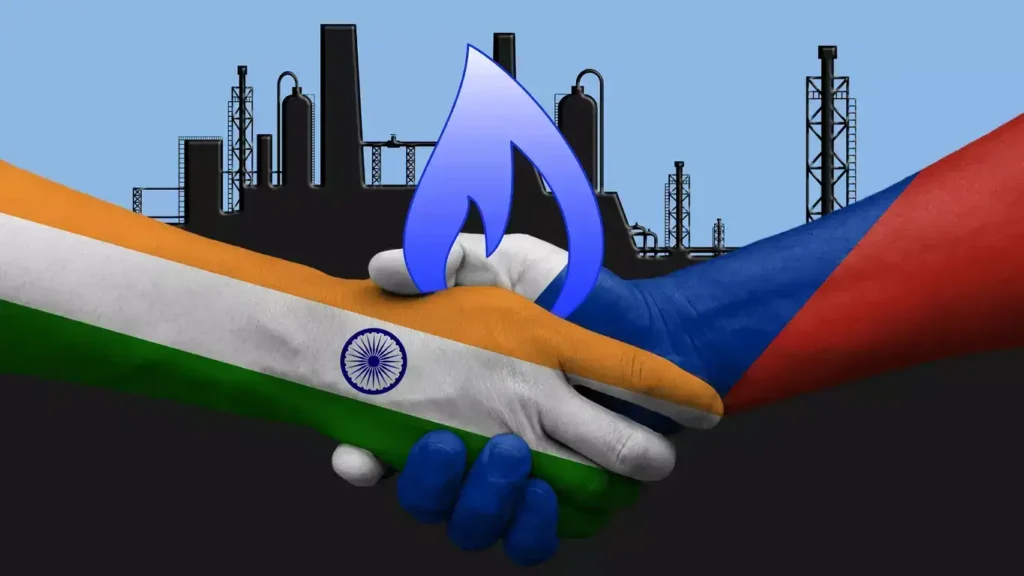Indian Oil Halts Russia Oil Deal Talks, Denies Link to US Sanctions
India’s top refiner, Indian Oil Corporation (IOC), has paused negotiations to renew a term oil supply deal with Russia. Although the move has sparked speculation about geopolitical pressure, IOC clarified that the decision stems from evolving commercial dynamics—not U.S. sanctions.

Russian Oil Term Deal Expired in March 2023
Indian Oil had signed a term contract with Russian oil suppliers, especially after the Ukraine conflict began in 2022. That agreement enabled India to purchase Russian crude at discounted prices, easing the pressure of rising global oil costs. However, the deal expired in March 2023, and IOC has not pursued a renewal since then.
This marks a notable shift in India’s oil procurement strategy. Russian crude had played a key role in India’s imports over the past two years. After Western sanctions on Moscow began, Russia redirected its oil exports to countries like India and China, offering deep discounts.
Indian Oil Clarifies: “No Link to US Sanctions”
As the U.S. expands its sanctions to restrict Russia’s energy trade, many have questioned whether Indian firms are feeling the pressure. IOC has addressed these concerns directly.

“We haven’t renewed the contract with Russian suppliers because of commercial reasons,” an IOC official said. “There’s no foreign government influence, and U.S. sanctions haven’t directly impacted our operations.”
This statement comes at a time when the U.S. has started targeting companies that help Russia bypass the $60-per-barrel oil price cap imposed by the G7 and the EU. Indian refiners remain cautious but continue to follow global trade laws to avoid penalties.
India Recently Boosted Russian Oil Imports
Since Russia invaded Ukraine in early 2022, India increased its Russian oil imports significantly. With European nations reducing purchases from Russia, Moscow turned to Asian markets with attractive price offers.

India, in turn, became one of Russia’s biggest oil buyers. The discounted oil helped India contain inflation and manage its fuel costs during a volatile global energy market.
But over time, those price advantages have narrowed. Analysts say Russian crude now costs about the same as oil from other regions. As a result, Indian Oil likely found fewer benefits in sticking to a long-term contract with Russian suppliers.
Payment and Logistics Challenges
Buying Russian oil also involves complex logistics and payment methods. Due to sanctions that removed many Russian banks from the SWIFT system, Indian refiners had to use alternative currencies like the rupee, dirham, and yuan.
These alternate payment routes have caused issues. Delays, conversion inefficiencies, and unclear banking procedures have made transactions difficult. Sources believe Indian Oil decided to pause negotiations to reassess these long-term challenges.
Private Refiners Continue Buying Russian Oil
While Indian Oil has stepped back from the deal, private Indian refiners—such as Reliance Industries and Nayara Energy—continue importing Russian crude. These companies, with more operational flexibility, rely on short-term spot deals based on daily market rates.
Their purchases show that Russian oil remains viable for Indian buyers under certain terms. Analysts suggest that Indian Oil could return to the negotiating table if commercial terms become more favorable again.
India Carefully Balances Energy and Diplomacy
India continues to walk a diplomatic tightrope in its energy dealings. While it has not condemned Russia’s actions in Ukraine, it has strengthened ties with the United States and the European Union in trade, defense, and technology.
Oil imports form a crucial part of India’s foreign policy, requiring a balance between affordability and diplomatic relationships. Foreign Minister S. Jaishankar has reiterated that India’s oil decisions are based solely on national interest and economic advantage.
He stated multiple times that India would source oil from any supplier offering a competitive price, whether that’s Russia, the Middle East, or elsewhere.
What’s Next for Indian Oil?
While IOC has halted current talks with Russian suppliers, the company has not ruled out future negotiations. Meanwhile, it has begun increasing oil imports from the United States, West Africa, and the Middle East.
This move helps IOC diversify its sources and reduce risk from relying on a single supplier. In today’s unpredictable energy landscape—shaped by sanctions, conflicts, and OPEC+ decisions—flexibility has become essential for any major refiner.
Final Thoughts
Indian Oil’s decision to pause its Russia oil deal reflects a shift in global oil trading priorities. Instead of geopolitical pressure, practical concerns like pricing, logistics, and payment clarity have taken center stage. While politics may shape headlines, IOC seems focused on securing energy at the best terms for India.
With the international oil market constantly evolving, Indian refiners are keeping all options open. Whether or not IOC resumes talks with Russia may depend on future market conditions—and not on outside influence.






